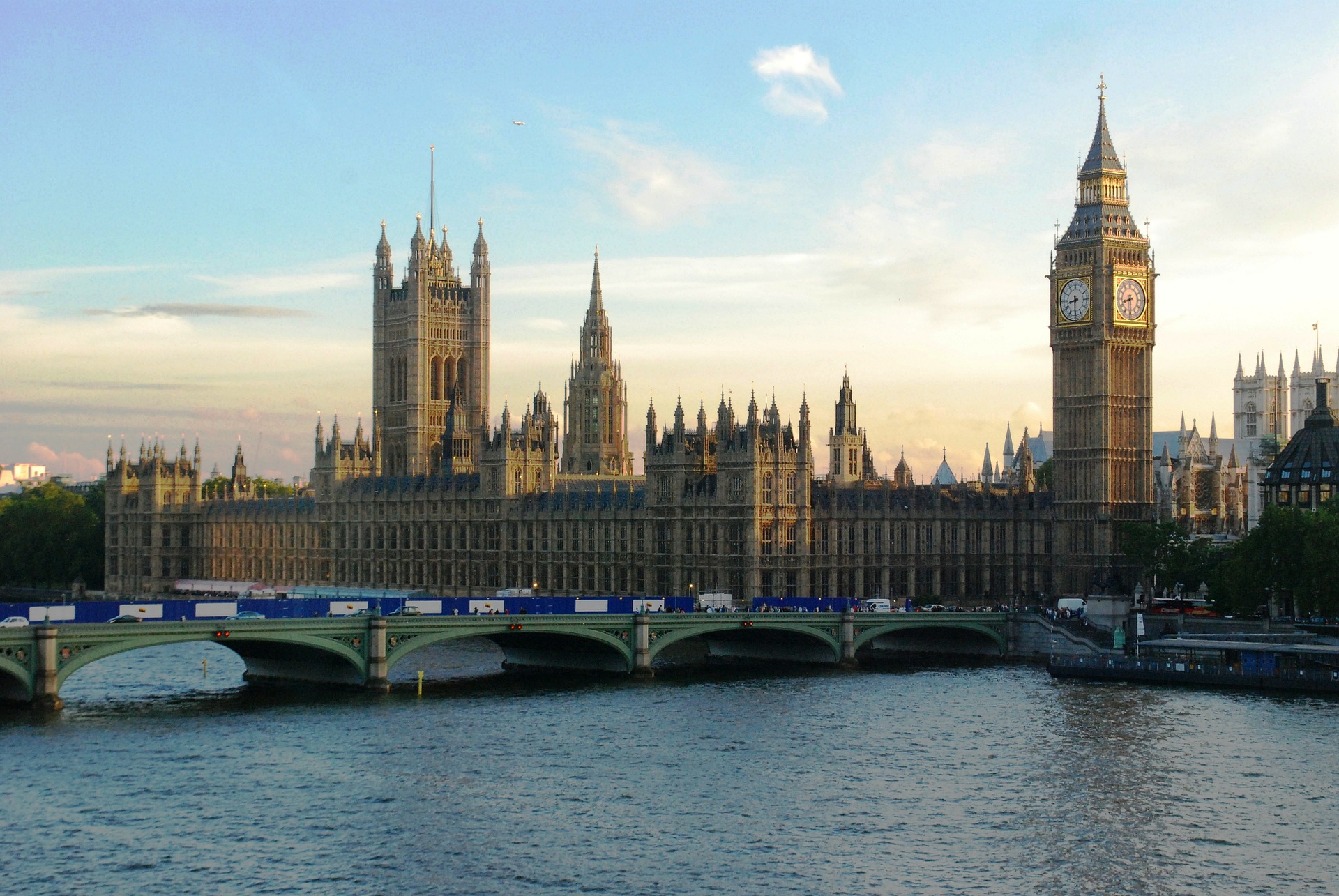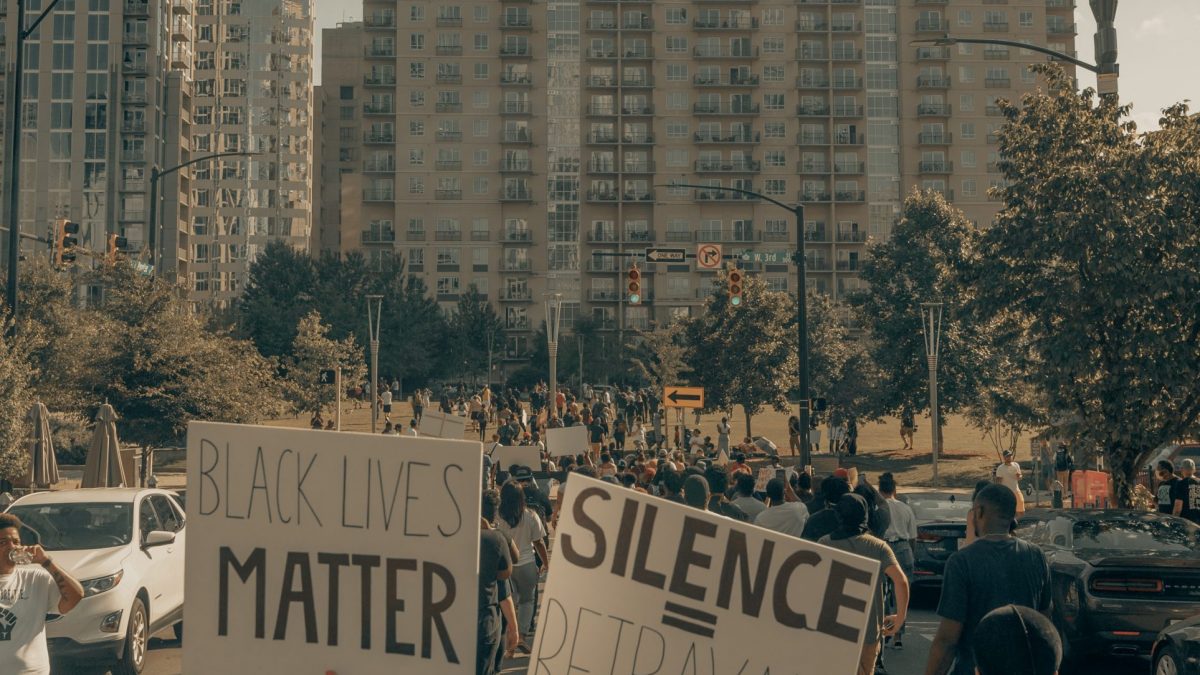
Interview with Lorraine Chimbga, future trainee at a Magic Circle Law Firm
July 19, 2020
Clear the Lobby: What laws are MPs voting on this week (w/c 20th July)?
July 20, 2020Article by Natalya McPartland
Introduction to the Black Lives Matter Series by Katerina Mrhacova
By this article, The Student Lawyer introduces a series inspired by the #BlackLivesMatter movement. This series will address topics ranging from defunding the police to the persisting biases in the legal profession, connected to the central theme of racial relations. In this way, we hope to contribute towards the much needed and overdue conversation on racism. The series is an expression of student journalism on the deeply-rooted issues of social, economic and cultural issues and highlights the systematic injustice that has been occurring for years. Our efforts are further fuelled by the fact that this societal issue has been long-ignored as some have been scared to speak out on the topic in fear not to offend anyone, others have overlooked the instances of injustice because they may not feel personally involved, and other excuses could be listed. However, the goal of this series is not only to shed light and share frustrations with the current oppressive institutional arrangements but also a hopeful suggestion of possible improvements to the existing institutional structures. We are students, writers, young people who try their best in addressing this series, but we also understand that we are likely to make mistakes or have an incomplete picture of the experiences of others. For that, we are open to comments from our readers, and we would be happy for others to get involved in this much-needed discussion. It is vital that we recognise our responsibility to keep the conversation going, and the unique position of law students as future policymakers with the power to contribute to the betterment of society.
Defunding the Police
What is police defunding?
Contrary to popular belief, defunding, or even disbanding, the police will not create a lawless society and total abandonment of enforcement. Rather, advocates are calling to innovate the way in which laws are enforced – it is being referred to as a ‘reimagination of public safety’. In theory, it involves shifting our resources from armed forces to community schemes and interventions which focus on prevention instead of an ill-delivered cure. The range of social issues that police are called upon to answer is broad and ever-expanding and could be much better approached by a number of community-led task forces, trained to respond specifically to particular issues. Decentralising like this would be key to reducing the risk of corruption, and to ensuring that all incidents are dealt with the people best placed to do so.
Why are people advocating for it?
The current system enables and reinforces patterns of racial and class oppression. Currently, much focus is being placed on these issues due to the protests in the wake of George Floyd’s death, and the police brutality on our screens almost daily. However, police brutality is only one of the reasons that police defunding is being considered in Minneapolis and called for elsewhere.
The police are continually being presented as just another public service which is suffering under a continued period of austerity. However, the police budget far outstrips most other public services; their budget is not too small, we are over-reliant. We are frequently turning to the police to deal with situations in which their involvement is unnecessary – for example, concerning homelessness, youth issues, mental health crises, drug and alcohol-related problems and domestic violence, even issues surrounding COVID-19. These are all seen as situations where social workers may be better placed to help. This over-reliance is giving more and more power and resources to an imperfect institution, as well as putting them under more pressure. None of these factors is conducive to their ability to uphold public safety.
In accordance to the US activist site ‘A World Without Police’, ‘unequal enforcement and violation aren’t aberrations: they are a necessary part of the job’. Funded by wealthy merchants, one of our earliest police forces was founded to protect commercial docks in London in the late 18th century. They were essentially set up in order to promote and protect the interests of an elite ruling class and though the police’s form and function have clearly since diversified, their main priorities appear to be the same, even centuries on. It is not possible for the police to protect and serve everyone equally, as they are designed to maintain an unequal system. Police misconduct is undoubtedly a part of everyday life in the UK, and it is dealt with inadequately. Defunding would cut down on the resources and manpower required to uphold such an agenda while investing in initiatives which can help all of us equally.
Presently, the way in which our criminal justice system intervenes with social issues – such as those mentioned above – can have an exclusionary effect on the people impacted. These attitudes have essentially led to the criminalisation of poverty, making it more difficult for people coming from impoverished or marginalised backgrounds to have the same opportunities as their peers.
This has a disproportionate impact on BAME communities and the black community in particular, as has been demonstrated most recently by reports by Liberty Investigations and the Guardian that those from BAME backgrounds are 54% more likely to be fined for breaking coronavirus rules than white people are. Dealing with the way in which our laws are enforced is a massive step in the right direction for correcting racial and class injustices, though it is clearly not the only way. Defunding the police will send a powerful message, and examples of initiatives from other countries indicate that it could have a positive impact on public safety.
Where will the funds be going?
Nobody can say this for certain right now. The point of this movement is that one size doesn’t fit all, and solutions shouldn’t be treated as such. Different issues require different training and resources. Defunding police means reducing our overreliance, as discussed, but it also requires implementing initiatives to take their place, hopefully with added success. This has been started in other jurisdictions, which are beginning to outsource issues that we conventionally entrusted to the police.
Camden, New Jersey – Community Policing
The police department in Camden, New Jersey was dissolved in 2012 after corruption rendered it unfixable in the Council’s eyes. It was then replaced with an entirely new department, and according to data released by the reformed police department, violent crime has dropped by 42% since. The model bucks trends in the US, with officers hosting outdoor parties for their residents, and an initiative which requires trainees to knock on the doors of communities they are working for and ask how they can do better.
Camden now relies more heavily on ‘community-oriented policing’ – it prioritises working with the community to solve issues over violent and punitive measures. Their training emphasises de-escalation, cutting down on violent incidents. Above all, they have created a system in which residents trust and value them as protectors and guardians.
Community leaders say that willingness to engage in a ‘productive dialogue’ with the community has improved and the city feels much safer as a result. The police believe that their job is to allow the residents of the city to claim the streets as their own. Of course, they agree that there are issues that cannot be policed out – and which need further community initiatives to deal with. Gentrification, poverty and addiction are still issues in the community, and likely will be until they are dealt with directly. Beginning with a focus on compassion and community problem-solving, over punishment appears to be a step in the right direction for this city, at least.
Portugal – Drugs policy
Portugal took a radically different approach to the war on drugs than its peers. While the substances themselves are illegal, possession of small amounts of drugs was decriminalised in 2001. Their focus is instead on ensuring that small-time users get help, with a health-centred approach. Social workers are used to dealing with these issues rather than police, which is a move used in some other jurisdictions too, and which seems to yield better results. NPR reports that in the years since this has been implemented, the number of drug users in Lisbon appears to have fallen by 75% and According to Filter, Portugal has the lowest overdose fatality rate in Western Europe, with it having decreased by 80% by 2019, compared to 2001 when the reforms were implemented. HIV dropped from 104.2 new cases per million in 2000 to 4.2 new cases per million in 2015.
Channelling resources from drug policing and punishment into treatment and prevention of addiction is clearly working for Portugal. Addiction is treated as a disease, as drug control has been shifted from the Ministry of Justice to the Ministry of Health. Stigma within the country has changed as a result – drug use is no longer treated as a moral or a legal dilemma, it is a health issue to be overcome. João Goulão, the man behind the model, pointed out that drug use is a ‘symptom of some suffering’. By dealing with the root of the issue, they have tackled it far more successfully than the rest of Western Europe.
There is also an economic benefit to the approach – treatment is less costly than incarceration, and it solves the problem rather than exacerbating it. If we allowed our police officers to take a step back from issues surrounding addicts and channelled the resources to social workers and trained medical professionals instead, we could see much more success in dealing with addiction.
Stockholm, Sweden – Mental Health
Stockholm deployed its first mental health ambulance (part of its Psychiatric Emergency Response Team (PAM)) in 2017 and it appears to have been successful. Department data shows it responded to over 1,000 individuals in its first 12 months, and only 96 of these required repeated contact. Around one quarter were entered into longer-term inpatient care. Replacing sirens and stretchers of a traditional ambulance, or the caged backseat of a police car, with what is essentially a travelling therapy room – comfortable seats, a soothing atmosphere – appears to have made people feel better listened to and has been found to be best placed to deal with the problem at hand. The quality of care has been greatly improved, compared to that given by the untrained and time-constrained police.
A study found that patients felt they were given much better care by the psychiatric emergency response than they were by traditional emergency response methods. They felt they were listened to, able to participate in decision making without being pressured or forced into further care. They agreed that the personnel created a ‘safe caring environment’ where they were able to discuss issues without feeling judged or dismissed. A similar approach was adopted in Dallas, Texas. The study shows it resulted in the number of psychiatric patients arriving at hospital A&E decreasing by 20%, and people have even begun to ask for the social workers’ care team when calling 911, showing a shift in attitudes in the community.
These show that our approaches to mental health can be improved. By addressing the issue itself, rather than punishment or detention of a person who is suffering, it can reduce the need for repeated interventions and unnecessary suffering. Allowing the resources to open up such a programme and the resulting dialogue takes away further need for police resources, as it focuses on prevention of crime, rather than retrospective action to work as a ‘cure’.
Scotland – Violence Reduction Unit
In 2005, Glasgow was dubbed the ‘murder capital of Europe’ by the World Health Organisation. Since then, Scotland has taken strides to reduce violent crimes – knife crime in particular – and has seen great success. BBC reported that in 2004/2005, there were 137 homicides in Scotland overall, with 40 cases alone in Glasgow. This had dropped to 59 in Scotland by 2016/2017, which constituted the lowest number of recorded homicide cases for a 12-month period since 1976.
This success may be credited to Scotland’s ‘Violence Reduction Unit’, which believes that ‘violence is preventable, not inevitable’. This was founded by the police but requires wider community initiatives to be run. In the Navigator scheme, former offenders patrol emergency hospital wards looking for people at ‘teachable moments’ to break violent cycles. There is a focus on education to prevent crime – medical teams travel the country, talking in schools about caring for people after knife fights or stabbings. They have a range of programmes tackling everything from the impact of adverse childhood experiences to training programmes to help with domestic abuse. They also focus heavily on giving people second chances, primarily attempting to open the doors to employment to help people who have been involved with crime in the past. This is exemplified by Street & Arrow, a social enterprise which aims to prevent reoffending by hiring people for 12-month blocks, during which they’re mentored, paid and taught basic employment skills.
The social utility of such programmes is clear through the statistics and testimonials of those involved. There is a similar Violence Reduction Unit in its infancy in London, which they hope will yield similar results. This could hopefully be implemented across the UK in the future, which would again allow us to divert some resources to genuine help and crime prevention rather than to sentencing and punishment after the fact.
Finland – ‘Housing First’ approach
Finland’s ‘Housing First’ strategy to tackling homelessness has resulted in a 42% drop in the number of long-term homeless people since 2008 (The Washington Post), when the programme was launched. In a bid to reduce reoffending and substance abuse, people in the programme receive access to support alongside housing. Juha Kaakinen, CEO of a Finnish affordable rental housing provider and secretary of the working group who established this programme, said that they believe ‘everyone can live independently with the right support… Temporary accommodation does not offer much in terms of building a stable life…’. Instead, the ‘Housing First’ model focuses on supporting integration and the building of networks, to provide those in their programmes with a long-term support system and a permanent home. For those with substance abuse issues, harm reduction models are implemented, with a focus on respecting their autonomy; everyone on the programmes is treated as equal to the staff, working with them to find solutions.
This is unsurprising from a country which believes that ‘good social development policy is the best criminal policy’. This scheme was prioritised even in the wake of the 2008 recession, and it has seen considerable success because of this. Taking such an approach to homelessness reduces crime, as it reduces the necessity of it. This only reinforces that the criminalisation of poverty – exemplified in this case through loitering laws, hostile architecture and the difficulty people can face finding employment or support without an address – does not provide us with security. Finland has shown that reshuffling public funds to provide such schemes as this with support would have a much better impact on our overall public safety than criminalising homelessness does.
We could take this further
The police merely enforce, they do not invent, institutionalised racism or social inequity. If searching for a truly equitable society, reforms need to go further than defunding the police. Race bias in the healthcare system must be tackled. Education on racial issues and full accounts of history must be established. community initiatives are a good place to begin, as they can help us to identify where the worst harms occur and help us to mitigate them. Ahead of us is a long road of education and discomfort, but we have a chance to make our country – our world – better, fairer and safer for all.
Criminal justice policy and social policy are not synonymous, and they should not be treated as such. Reducing our over-reliance on the police requires recognising that criminalising addiction and poverty is never going to provide the public safety we’re looking to secure. Only then will we have the knowledge and resources to start to effect real change which can protect all of our society, rather than some sectors, at the cost of the rest.





